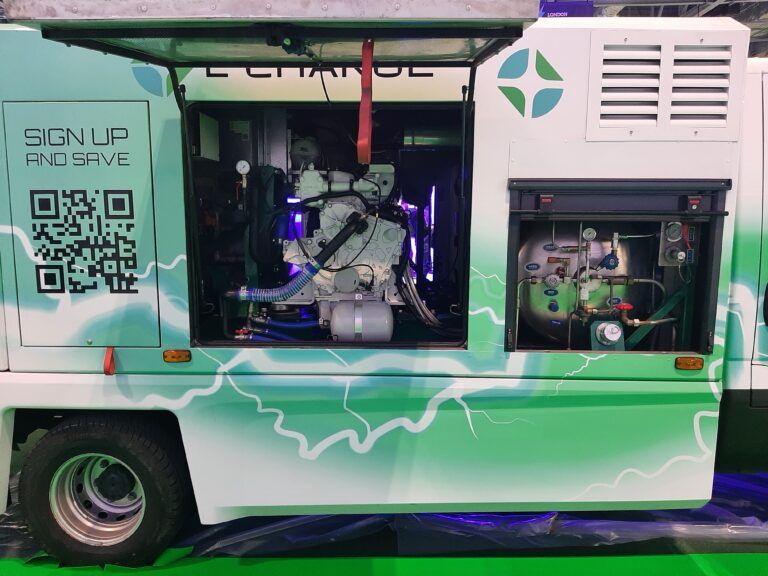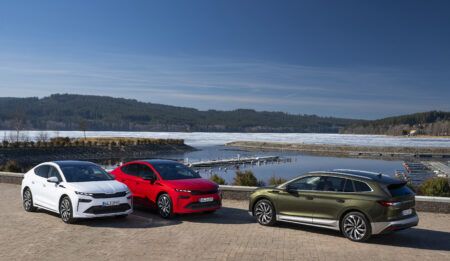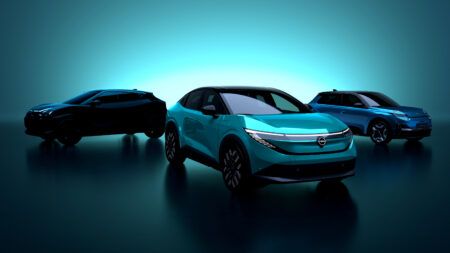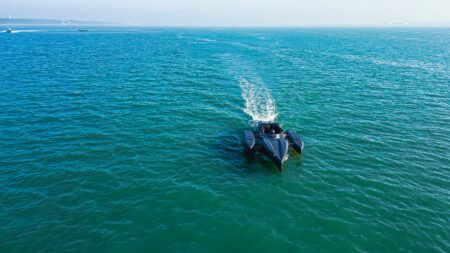The London EV Show is in full swing, and its fair to say the venue’s booths are dominated by some innovative charging technologies. One in particular was somewhat different from the others, however. E&HV paid a visit to the L-Charge booth to learn more from chief product officer Stephen Sorrosh about its ongoing efforts in developing off-grid charging.
Off the grid
“We’re still in the deployment phase, and what’s interesting is this vehicle was initially designed purely as a tech demo for our power boosters and fixed, grid independent chargers,” notes Soroosh, adding, “That contained unit can give you up to 2MW of power.” Soroosh says they garnered enough interest on the mobile unit to consider developing it as a standalone product, which they swiftly did.
Just one of the two fitted tanks can provide 1000kWh of juice, which equates to roughly 20 cars per day, ideal in rescue and recovery situations for fleet operators, with whom several of these L-Charge units are already in deployment.
Reducing operating costs
Soroosh points out the immediate benefit to clients who are looking to electrify their fleet, but “don’t know what they don’t know” about the necessary installation and operating expenditures associated with an EV-first fleet.
“No operating expenditure, no infrastructure cost, no overheads, we take care of everything, that’s what makes it so valuable to our current client base,” says Soroosh a base which consists of everyone from road infrastructure agencies to taxi operators.
The vehicle itself uses an Iveco chassis and runs on diesel, the reason for which ultimately comes down to time and money. “Building an electric chassis costs a lot, and the lead time on something like that for us is over 18 months,” says Soroosh. The units themselves however can be powered by either liquefied nitrogen gas (LNG) or hydrogen or even a mixture of the two.
The L-Charge mobile unit is not current available for commercial purchase, though Soroosh did note they were looking to make the unit commercially available in 2024.





